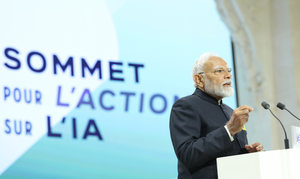India now home to over 450 Web3 startups, 11% of global talent
Currently, India is home to over 11 per cent of the global Web3 talent, making the country the third largest Web3 talent pool worldwide.
Between 2021-2022, India registered over 170 new Web3 startups, yielding over 50 per cent CAGR growth since 2015.
With increasing confidence and interest from global investors, investments in Indian Web3 and Web 2.5 startups have also soared. New age incubators have pooled in over $587 million, said the NAsscom report with VC firm Hashed Emergent, prepared in research partnership with Zinnov Consulting.
“While we are only scratching the surface when it comes to emerging tech such as Web3, the ‘Techade’ will be all about the technology making significant advances leading to innovative use-cases and magnified positive impact at a grassroots level,” said Debjani Ghosh, President, Nasscom.
Web3 has become a buzzword with technological concepts, such as metaverse and non-fungible tokens (NFTs) gaining prominence.
In terms of distribution, over 80 per cent of Indian Web3 startups are in the tier I cities.
However, the tier 2 and 3 ecosystem is growing rapidly with locations such as Jaipur, Vadodara, Ahmedabad, Kolkata, Trivandrum and Coimbatore evolving as emerging hubs for Web3 startups.
Today, nearly 75,000 Blockchain professionals are actively employed by the tech industry in India, the report said.
This surge in Web3 startups has driven up the adoption of blockchain. Startups focused on other emerging technologies are building solutions for on-chain consumption.
While the global demand for blockchain specialists and developers surges, India’s existing, and fastest growing digital talent pool has incumbent advantages when it comes to expertise development, quick reskilling, and bridging the Web3 demand-supply gap.
The report said that this talent pool is expected to grow by over 120 per cent in the next 1-2 years.



